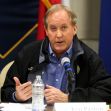The First Amendment protects free speech. However, the line becomes tricky when it comes to social media. Can social media platforms regulate what you say or is what you say on the platform protected by the First Amendment? Social media platforms like Facebook, Twitter, etc. will take down any content that they find “objectionable”- usually for posts considered “hate speech” or sexually explicit. However, in the United States, hate speech is protected by the First Amendment.
In Reno v. ACLU (1997), the Supreme Court ruled that internet communication is similar to newspaper publishers, who receive a large range of 1st Amendment protection. Congress wanted to restrict certain online content because it wanted to protect children, but the Supreme Court ruled in the Reno case that since online content creators were treated as publishers, this could not be done. They also said that restricting certain online to protect the children was vague and too broad.
In 2019, Mark Zuckerberg, founder of Facebook, said “I believe we need a more active role for governments and regulators,” and endorsed forming an alliance with governments to police hateful speech on social media platforms. Zuckerberg went on to say, “Lawmakers often tell me we have too much power over speech, and frankly I agree. I’ve come to believe that we shouldn’t make so many important decisions about speech on our own. So we’re creating an independent body so people can appeal our decisions. We’re also working with governments, including French officials, on ensuring the effectiveness of content review systems. ...One idea is for third-party bodies to set standards governing the distribution of harmful content and measure companies against those standards. Regulation could set baselines for what’s prohibited and require companies to build systems for keeping harmful content to a bare minimum.”
In 2019, Zuckerberg also faced scrutiny when he made that decision to exempt paid advertisements and posts from Facebook’s fact-checking system, saying that it is “inspired by the First Amendment.” However, in 2021, Facebook banned former President Donald Trump for two years after the comments he made on January 6.
"At the end of this period, we will look to experts to assess whether the risk to public safety has receded," wrote Nick Clegg, Facebook's vice president of global affairs. "If we determine that there is still a serious risk to public safety, we will extend the restriction for a set period of time and continue to re-evaluate until that risk has receded."
Trump says that this decision is “an insult” to his supporters. "They shouldn't be allowed to get away with this censoring and silencing," he said.
Aaron Sorkin, director of The Social Network, criticized Zuckerberg in a New York Times op-ed piece. Zuckerberg responded with a quote from The American, another Sorkin movie, on his own Facebook page, saying, “You want free speech? Let's see you acknowledge a man whose words make your blood boil, who's standing center stage and advocating at the top of his lungs that which you would spend a lifetime opposing at the top of yours.”
Only the federal government can determine what types of speech are protected by the First Amendment. Private businesses like Facebook are not subject to the First Amendment. They are allowed to regulate the speech on their platforms and remove content that does not meet their standards.
Sen. Mark Warner reacted to Zuckerberg’s comments, saying, “I’m glad to see that Mr. Zuckerberg is finally acknowledging what I’ve been saying for past two years: The era of the social media Wild West is over….Facebook needs to work with Congress to pass effective legislative guardrails, recognizing that the largest platforms, like Facebook, are going to need to be subject to a higher level of regulation in keeping with their enormous power.”
As social media platforms evolve, they will continue to face scrutiny over how they regulate the information shared by users on their platforms.






